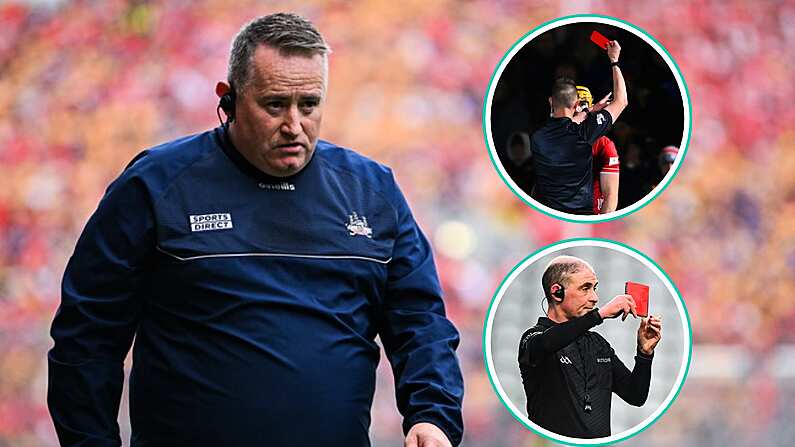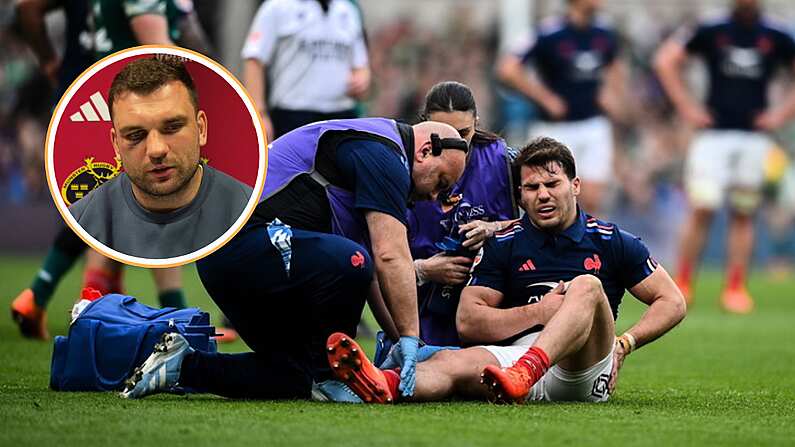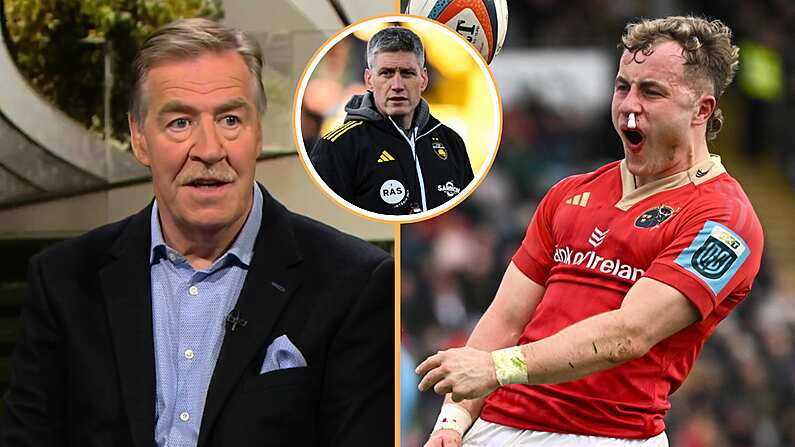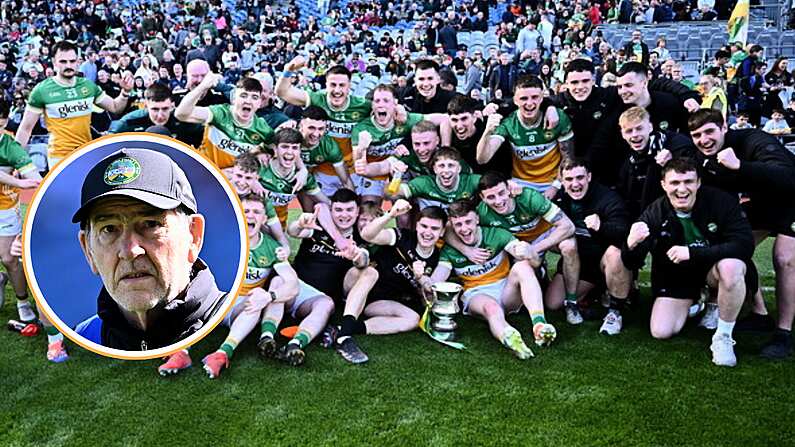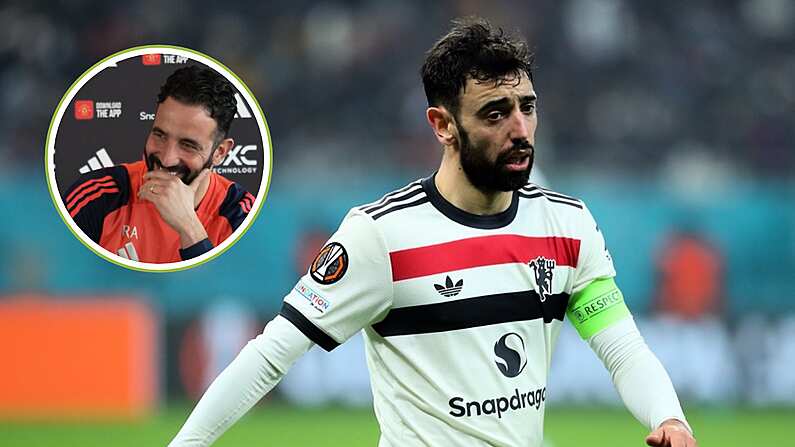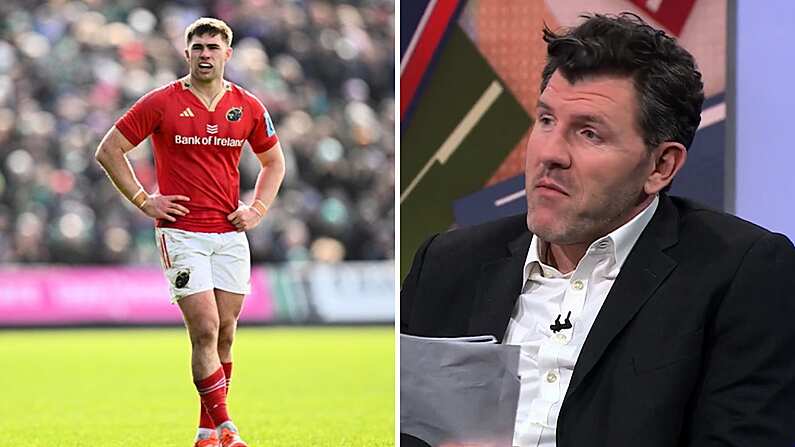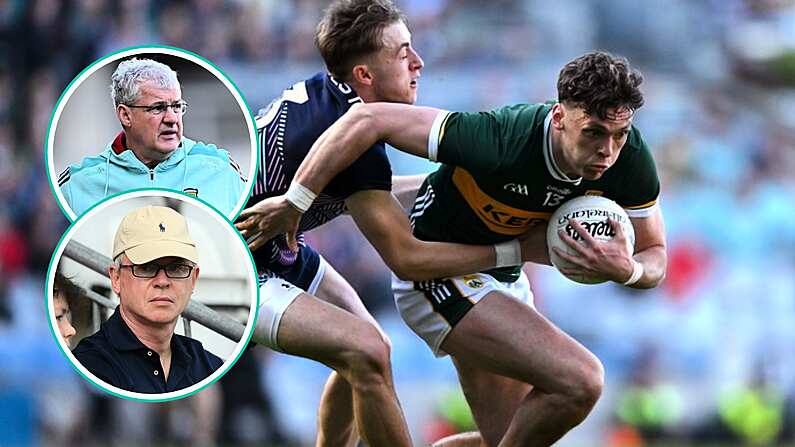When talking about his international career for an RTE series about a decade ago, Mark Lawrenson chirpily confirmed that the first time he'd ever been to Ireland was when he made his first cap against Poland (who else?) in 1977.
When asked how he came to play for Ireland, he bluntly admitted that it was largely down to the fact that England hadn't picked him yet.
Irish sporting folklore is rich in jokes and apocryphal tales about Cockney lads breathing a sigh of relief when Amhrain na bhFiann finished before turning to their teammate and exclaiming '"bloody hell! I hope ours ain't as long!"
Incidentally, the story about Tony Cascarino and Andy Townsend being flummoxed by this Charlie Haughey geezer in the dressing room in Rome in Italia 90 (Quinny says he owns a teashop!) is technically true, but Cas has confirmed to Balls.ie that he and Townsend were taking the piss at the time. They knew who Haughey was.
However, for every English-born lad who pulled on a green shirt simply because there was no white short being thrust in front of him, there were English-born lads who were determined to play for Ireland and were never going to play for anyone else.
Gary Breen, Kevin Kilbane, Seamus McDonagh and the late Tony Grealish are a few notable figures in that category. During team bonding sing-songs in the early 1980s, Eoin Hand recalled how Grealish and McDonagh were more au fiat with the lyrics of rebel tunes than the vast majority of the Irish born players.
As it happens, Grealish is one of the few men to have played both Gaelic football and soccer at Wembley, possibly the only one. We're informed that Kevin Moran might have played in a GAA tournament in Wembley in the 70s.
And, perhaps most interestingly, it is these players, the English-born players who are attached to Ireland since childhood who are the most critical of those players who transfer allegiance under a flag of convenience.
A couple of years ago, we spoke to former Irish underage international Liam George, the man who scored the winning penalty in the 1998 U-18 European Championship final, and a man who identified as Irish growing up and who was never going to play for anyone else.
He was outraged by the attempts to recast Hull's Curtis Davies as an Irishman and, even more so, by the Mark Noble saga. Speaking to Balls.ie, George unloaded on the efforts to bring Noble into the fold.
If I'm going to be completely honest I think its a disgrace. Here is a guy that's played for England all his life, he's got caps at U-21, he's played 20 times. Played all the way through. No affiliation to Ireland whatsoever. I just think its cheating an Irish lad who's got a passion for his country and wants to play to represent his country.
If you said to me, you'll get to the Euros with these types of players in place, or not get to the Euros without them, I'd rather not go.
Neither player ended up switching allegiance. In Davies's case, he was rather baffled by the approach. Even by the standards of the granny rule, Davies's links with Ireland were very tenuous indeed.
As far as he was aware, his grandmother was born in Ireland because of her father's role in the British army during the War of Independence. Shortly after her birth, the family returned to England. Davies does not exactly bleed green, if we can put it that way.
More famous and celebrated players than him found the idea that they were Irish eligible rather bizarre. On Saint & Greavsie back in the 1980s, Jim admitted his misgivings about the granny rule, alleging that the urine was being taken with some of the declarations. England's most gifted ever striker dipped into his family background, revealing that he too was eligible for the green. He found the thought incomprehensible.
I think you gotta draw the line somewhere, Saint. I mean, my grandparents were Irish. I was born in the East End of London. I talk like this... ‘ow can I play for Ireland!!?
On Off the Ball tonight, Kevin Kilbane - Longford Town fan forever, hopefully he's coping - pondered the question, in light of the realisation that Bundee Aki could be eligible to play rugby for Ireland.
I've been questioned meself. Of course we have. We've all been. You grow up with an English accent. And there've been few who would have played for Ireland above everybody else.
Bundee Aki would have given a lot to the country. Probably more to Ireland than a lot of the players that have been called up for us over the years that wouldn't necessarily have any sort of link or any sort of history with us at all. But because they've got an Irish grandparent they would have played for us.
I've got problems with this. All of a sudden now, you can declare for a certain country when, growing up, it wouldn't have been your dream to play for that country. I've got a problem with that.
It is those English-born players - the ones who know their Wolfe Tones from their Christy Moores, the one's probably played a bit of Gaelic football in their youth - who seem most strongly critical of those who are ambivalent but calculated about their international allegiance.
By contrast, John Giles, born in Ormonde Square in the centre of Dublin, found little problem with our attempts to secure Noble's services, pointing out to the Off the Ball crew in 2015 that we've had loads of players in his mould over the years.
Lads who'd dreamed of playing for England but had made a calculated decision to throw their lot in with Ireland - and thrived. None more so than Mark Lawrenson, whose performances were influential in getting Ireland to Euro 88.


